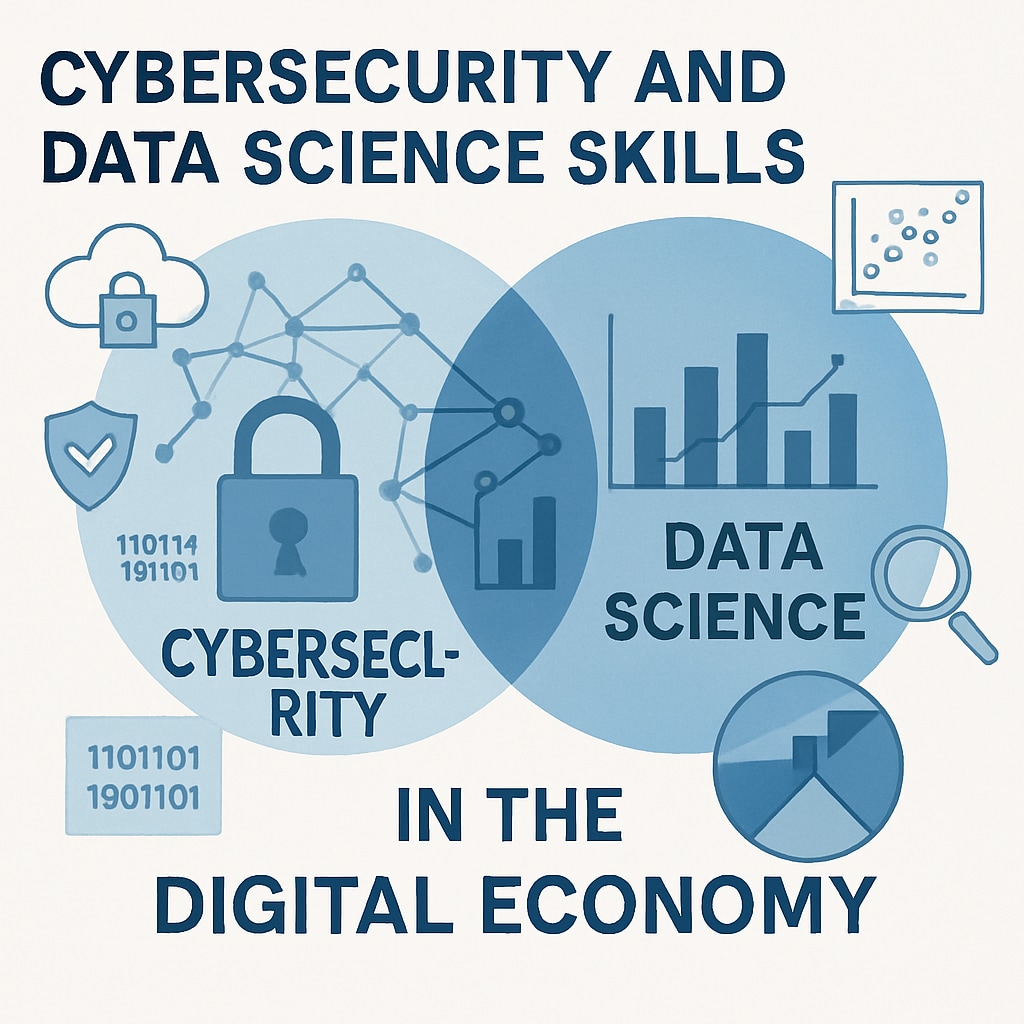In today’s digital era, cybersecurity and data science have emerged as two of the most attractive career fields, offering immense growth opportunities and job security. The demand for professionals skilled in these areas has skyrocketed, creating lucrative career paths for those with the right expertise. This article examines the role of K12 education in fostering early interest and skills in these fields and provides insights into their career prospects.
Why Cybersecurity and Data Science Stand Out
Both cybersecurity and data science are integral to the functioning of modern society. Cybersecurity focuses on protecting systems, networks, and data from malicious attacks, while data science leverages data to extract valuable insights and drive decision-making. These fields are not only critical for businesses but also for governments and individuals.
According to Britannica, cybersecurity professionals are vital in safeguarding sensitive information, preventing breaches, and maintaining trust in digital systems. On the other hand, data scientists use statistical techniques and machine learning algorithms to process vast amounts of information, as detailed by Wikipedia.

Preparing Students Through K12 Education
Early exposure to these fields during K12 education can significantly influence students’ career choices. By integrating topics like programming, ethical hacking, and data visualization into the curriculum, schools can develop foundational skills. Additionally, extracurricular activities such as coding camps and cybersecurity competitions can inspire interest.
Key initiatives for K12 schools include:
- Introducing basic concepts of cybersecurity and data science through hands-on projects.
- Offering courses in computer science and statistics to build foundational knowledge.
- Collaborating with tech companies to provide mentorship and internships.

Career Pathways in Cybersecurity and Data Science
Graduates in cybersecurity often pursue roles such as security analysts, ethical hackers, and network administrators. Data science professionals typically work as data analysts, machine learning engineers, or data scientists. Both fields offer diverse opportunities across industries, including healthcare, finance, and technology.
In addition to traditional roles, emerging positions such as artificial intelligence cybersecurity specialists and data privacy consultants are gaining traction. The Bureau of Labor Statistics predicts a strong growth rate for data science and cybersecurity-related jobs over the next decade, ensuring their relevance in the future job market.
For students considering these career paths, certifications such as Certified Ethical Hacker (CEH) for cybersecurity or Professional Data Scientist (PDS) for data science can enhance employability.
Conclusion: A Future-Proof Skillset
Cybersecurity and data science represent two pillars of the digital economy, offering stability and growth in an ever-evolving technological landscape. By fostering interest and skills in these domains at the K12 level, educators can prepare students to thrive in the digital age. Both fields offer exciting career opportunities, making them ideal choices for students looking to build a future-proof skillset.
As the digital landscape expands, the importance of cybersecurity and data science will continue to grow. Investing in early education and professional development in these areas is not just a career choice—it’s a strategic move toward a promising future.
Readability guidance: Use short paragraphs to maintain reader engagement. Incorporate lists to summarize key points. Maintain consistent use of transition words (e.g., in addition, as a result, however). Balance technical terms with accessible explanations for broader readability.


